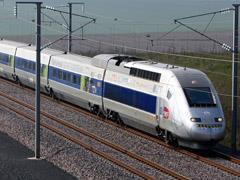
FRANCE: Meeting on December 8, new rail regulator Autorité de Régulation des Activités Ferroviaires approved the structure of track access charges being proposed for LGV Sud Europe Atlantique between Tours and Bordeaux. This forms a key part of the funding package being put together by the Vinci-led Lisea consortium which has been selected by RFF to complete the line under a build-operate-maintain PPP concession that transfers both construction and revenue risk to the private sector.
ARAF formally began work on December 1, but was required to give formal opinions on several topics almost immediately. So in practice the preceding months had been occupied by considerable behind-the-scenes activity and frequent contact between ARAF and the infrastructure manager.
RFF President Hubert du Mesnil is in no doubt that ARAF's arrival on the French railway scene has the potential to trigger fundamental change. Its first role, he says, will be to ensure fair competition, dealing with complaints from operators about discrimination and problems with access to the RFF network. But ARAF will also take a view on RFF's costs and access charges. From now on RFF will have to secure formal agreement for any changes, making the regulator 'very powerful'.
'We will have to prove that our prices can be economically justified', explains du Mesnil. 'We will need to demonstrate that the price corresponds to the relevant cost and that we have made every effort to keep the price low. Why? Because RFF is a monopoly - we are in a market with no competitors.' RFF must ensure that its customers can afford to pay the charges, and du Mesnil is aware that too high a price could act as a deterrent and weaken the market. 'So we are studying our customers to see if they can pay', he says.
RFF's proposal to raise fees for use of the Lignes à Grande Vitesse in 2012 - which lies behind the government's willingness to relax control of TGV fares - will be one of ARAF's first determinations. Du Mesnil acknowledges that it would be open for ARAF to say that higher fees for operating high speed trains could represent an obstacle to new market entrants. While SNCF may be able to pay, other operators keen to secure a foothold in the market may not. So perhaps ARAF would prefer to see freight train charges to rise to reflect their actual costs.
'ARAF will certainly bring about major changes', predicts du Mesnil. 'ARAF will be a new partner in the railway debate, and they will need to be convinced why we do things the way we do. They will have the option to use international benchmarking to compare our costs with those in other countries - and they will be able to draw on the experience of other regulators such as ORR in the UK.'

















